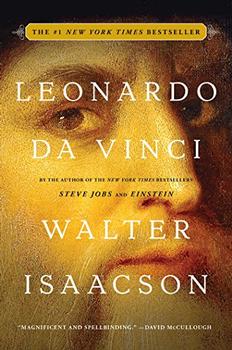Summary | Excerpt | Reading Guide | Reviews | Beyond the book | Read-Alikes | Genres & Themes | Author Bio

From the book
jacket: Escaping the sack of Rome in
1527, with their stomachs churning on
the jewels they have swallowed, the
courtesan Fiammetta and her dwarf
companion, Bucino, head for Venice, the
shimmering city born out of water to
become a miracle of east-west trade:
rich and rancid, pious and profitable,
beautiful and squalid.
With a mix of courage and cunning they
infiltrate Venetian society. Together
they make the perfect partnership: the
sharp-tongued, sharp-witted dwarf, and
his vibrant mistress, trained from birth
to charm, entertain, and satisfy men who
have the money to support her.
Yet as their fortunes rise, this perfect
partnership comes under threat, from the
searing passion of a lover who wants
more than his allotted nights to the
attentions of an admiring Turk in search
of human novelties for his sultan's
court. But Fiammetta and Bucino's
greatest challenge comes from a young
crippled woman, a blind healer who
insinuates herself into their lives and
hearts with devastating consequences for
them all.
Comment: Sarah Dunant's
historical novels are proving to be far
grittier than most of their ilk, which
makes them particularly appealing. Many
novels set in Renaissance Italy portray
it as a rather comfortable place to
live, with every second person engaged
in artistic endeavors or intellectual
discoveries, and often sounding
dangerously politically correct.
However, the reality is that most
people's lives were unchanged by the
"rebirth" of culture that was happening
in a few places, and Italy (which at the
time comprised of a number of city
states) was the home to endless power
struggles, a number of notorious
totalitarian rulers, considerable raping
and pillaging - and a few good artists.
In the words of the Washington Post
review of Dunant's first historical
novel, The Birth of Venus:
"[Dunant] has injected a kind of
realpolitik into the genre, making it
far more poignant and interesting."
If your view of historical novels
has been jaded by too many bland
offerings, In The Company of The
Courtesan maybe just the book to get
you to reassess the genre - and if you
love historical novels, this is definitely one
you'll want to take a close look at.
Incidentally, the picture on the cover
shows part of Titian's
Venus of Urbino.
About the Author
Sarah Dunant was born in 1950 and
educated in London before reading
History at Newnham College, Cambridge.
She is a former presenter of both
BBC Radio 4's Woman's Hour and
BBC Television's The Late Show.
She is the creator of private
investigator Hannah Wolfe and author of
the Marla Masterson series (writing as
Peter Dunant). In addition she has
written a number of stand-alone
psychological thrillers. Her first
foray into historical fiction was the
New York Times bestseller
The Birth of Venus; her second
is In the Company of the Courtesan.
She has two children and lives
in London and Florence.
Interesting Link:
Sarah Dunant discussing
In The Company of the Courtesan.
![]() This review was originally published in The BookBrowse Review in February 2006, and has been updated for the
February 2007 edition.
Click here to go to this issue.
This review was originally published in The BookBrowse Review in February 2006, and has been updated for the
February 2007 edition.
Click here to go to this issue.

If you liked In The Company of the Courtesan, try these:

by Walter Isaacson
Published 2018
He was history's most creative genius. What secrets can he teach us? The author of the acclaimed bestsellers Steve Jobs, Einstein, and Benjamin Franklin brings Leonardo da Vinci to life in this exciting new biography.

The Confessions of Catherine de Medici
by C.W. Gortner
Published 2011
From the fairy-tale châteaux of the Loire Valley to the battlefields of the wars of religion to the mob-filled streets of Paris, The Confessions of Catherine de Medici is the extraordinary untold journey of one of the most maligned and misunderstood women ever to be queen.
Judge a man by his questions rather than by his answers.
Click Here to find out who said this, as well as discovering other famous literary quotes!
Your guide toexceptional books
BookBrowse seeks out and recommends the best in contemporary fiction and nonfiction—books that not only engage and entertain but also deepen our understanding of ourselves and the world around us.